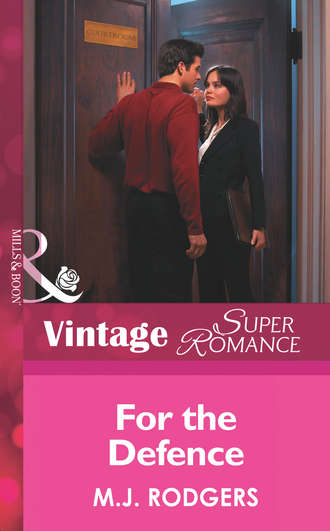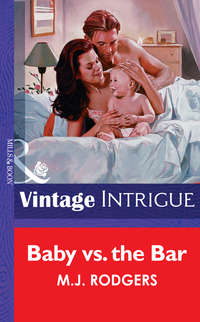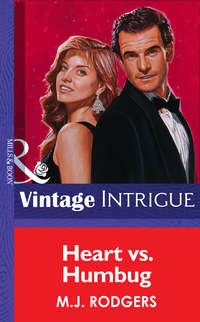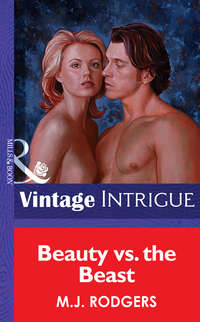
Полная версия
For The Defense
“How long have you worked at your family’s private investigation firm?”
He pitied anyone who got drilled by this lawyer while in a courtroom. Thankful he wasn’t sitting in the witness box, he avoided answering her sticky question by asking one in return.
“Do you think that my father would risk our firm’s forty-year reputation for excellence by sending you someone who couldn’t handle the job?”
Jack was well aware Diana had hired White Knight Investigations half a dozen times during the past two years. She’d come back because she’d been satisfied. Yes, she trusted Richard and David. But Jack also felt certain that she trusted their firm.
“You used to be an actor,” she said. Her tone was almost an accusation.
Ah, so that was the problem. She’d seen him on TV and was mixing up the character he’d played with the man he was. A common failing. Still, he would have thought someone with her obvious smarts would have hesitated before making such an assumption.
“I used to be a very good actor,” he corrected. “I’m very good at whatever I put my mind to, Diana. I have a strong sense that you are as well.”
He knew no one was immune to a compliment, as long as it was delivered with sincerity. Knowing when to mix a compliment with a first name had become second nature to him. The timing on these two had been right. Now he waited to see how well the combination had worked.
And waited.
She finally extracted a form from her middle desk drawer and slid it toward him. “This is our standard contract and confidentiality statement. Please initial beneath each clause, sign your full name at the bottom and we’ll get started.”
Jack told himself he hadn’t really doubted the outcome of this conversation. Nonetheless, he was relieved to hear her confirming words.
Scanning the contents of the two-part form she’d handed him, he noted that the confidentiality statement demanded absolute secrecy from him. It also warned that if he were to repeat anything about this case to an unauthorized party, he would be subjected to all the legal racks and thumbscrews at Diana Mason’s disposal. He had not a doubt that she’d be happy to apply them, too.
Jack took a pen out of his shirt pocket, initialed where she’d indicated, signed his name and passed the document back to her.
“I understand your client is charged with murder,” he said.
“First degree,” she said slipping the confidentiality statement into the fairly thin folder in front of her. “This is a court assigned defense.”
She pulled a stack of blank forms from her desk. “I’ll need your time and expenses recorded daily and turned in weekly on these.”
Damn, he hated paperwork. Dutifully taking the stack of forms she handed him, he decided to let Harry, the clerk at the firm, do this part for him.
“Does court assigned mean that you’re acting like a public defender?” he asked.
A new frown appeared on her forehead. “Don’t tell me this is your first criminal defense case?”
“If you don’t want me to tell you that then I definitely won’t,” he said and sent her one of his most engaging smiles.
She shook her head, clearly not engaged. “When there are more cases than there are public defenders to handle them, a judge drafts the services of lawyers from legal firms in the area to represent a defendant. We’re paid by the state, not by the client.”
“When were you drafted into service?”
“I got the case two weeks ago in a workload shuffle. But the court assigned Connie Pearce’s defense to another lawyer at this firm ten months ago.”
“Connie Pearce?” Jack repeated. “Isn’t she the kindergarten teacher who killed her lover?”
“That’s what all the banner headlines proclaimed last year.”
“I remember hearing about that case.”
“You and nearly everyone else in this county. Getting a panel of jurors that hasn’t heard wasn’t easy.”
“She was supposed to have hit him with her car,” Jack said as the details began to come back to him. “There were a couple of eyewitnesses.”
“Are you having second thoughts about accepting this assignment?”
He smiled into the serious look on her face. “On the contrary. I love being on the side of the underdog.”
The tenseness in her shoulders seemed to increase with his assurance.
“Well, then you’re going to be ecstatic working this case,” she said. “The victim’s father suffered a fatal heart attack after witnessing his son’s death. The victim’s mother is one of our most prominent and politically connected superior court judges.”
“And this prominent, politically connected judge is out for blood,” he guessed.
“The Honorable Barbara Weaton insists she’s simply out for justice, but you can be sure she’s not going to take kindly to anyone who is trying to help the woman charged with her son’s murder.”
He pointed to the thin folder in front of her. “Is that what the other lawyer has done?”
She gave the folder a quick glance. “Over the past ten months.”
Despite the evenness of her tone, Jack knew she wasn’t only unhappy about the thinness of the folder in front of her. She was angry.
“Why didn’t this lawyer do anything?” he asked.
“Earl Payman said Connie wouldn’t speak to him. Or anyone else.”
“That sounds like a symptom of shock to me. Why didn’t he think of that?”
“He brought in a psychologist to examine her a week after her arrest. She wouldn’t talk to him, either. The psychologist said he couldn’t testify to whether she was legally sane or not. Earl decided the safest thing for him was to plead her not guilty and let a jury convict or acquit her.”
“He did nothing else in the intervening nine and a half months?”
“He played a lot of golf with the two senior partners at this firm.”
Although Diana’s voice remained calm, there was enough contempt in her expression to have sent the incompetent, golf-playing Earl into lockup for life.
“Where has Connie Pearce been all this time?” Jack asked.
“In jail. Earl made no attempt to get her a bail hearing.”
“Have you talked to her?”
“Nearly every day since I got her case. But it wasn’t until late last week that she opened up and told me what happened.”
“And that’s when you called White Knight Investigations.”
Diana nodded.
He was pretty certain he knew why. “Connie Pearce convinced you that she wasn’t the one driving the car that killed Weaton.”
“No, she was driving the car.”
“She didn’t see the guy run in front of her car?”
“She saw him.”
Jack let his mind quickly dig through the other possibilities. “It was self-defense,” he said as the obvious answer came through. “The guy was coming at her, threatening to do her bodily harm, and the only weapon she had to defend herself was the car.”
“No,” Diana said. “It wasn’t self-defense.”
Jack was stymied. He couldn’t think of anything else that made sense. “Okay, I give up. What happened?”
“Connie Pearce saw Bruce Weaton in front of her car and she hit him.”
Jack was more confused than ever. “If that’s what she has admitted happened, then what do you need me for?”
Diana locked eyes with him as she leaned forward in her chair. “I need you to help me get her off.”
CHAPTER TWO
JACK STARED at Diana for sixty very long and silent seconds. Did she really have the audacity to ask him to help get a guilty client off?
He understood that most defense attorneys didn’t care if their clients were guilty. All they cared about was making sure that the accused was tried according to the dictates of the law. Didn’t even matter to them if a guilty client ended up slipping through a legal loophole.
It mattered to Jack. He was a little disappointed to learn that Diana was proving to be one of those attorneys. His father had given him the impression she had integrity. That was one of the reasons he’d wanted the case. Now he had a strong urge to get up and leave.
Only the straight, no-holds-barred challenge on her face combined with the total absence of any apology kept him in his chair. A woman who could face him this squarely didn’t strike him as one who would sell out her conscience.
He wasn’t going anywhere until he learned what the hell was going on.
“All right,” he said, settling back in his chair, “tell me why you want Connie Pearce to get away with murder.”
Something that looked suspiciously like surprise flashed across Diana’s face. So, she had expected him to leave. He found that very interesting.
As she studied him quietly, he returned her assessment, trying to read what thoughts or emotions were going on in that lovely head of hers. But this attorney knew how to keep both well hidden when she wanted to. Damn if she didn’t intrigue him more by the minute.
Without warning, she got to her feet. “I’d like Connie to tell you the story in her own words.”
“We’re going to see her now?” he asked.
“I called early this morning to let her know I’d be stopping by.”
Diana grabbed her briefcase and headed toward the door, slipping the long strap of her bag over her shoulder without so much as breaking stride.
“I’ll drive you over,” he said, hurrying to keep up with her. Most men probably found themselves getting lost in this woman’s wake. He had no intention of making the mistake of most men.
“I have my own car, thank you,” she said.
“Riding together will give us an opportunity to discuss the case.”
“I have to pick up my daughter from class and drop her at home before going to see Connie. You can either follow me or meet me at the jail. Up to you.”
A daughter? Damn. His hopes for something personal developing out of this assignment took an immediate and definitive nosedive.
Jack was very particular about the women he dated. And one of the things he was most particular about was that they not have any children.
“I’ll follow you,” he said.
SIZING UP PEOPLE quickly was an essential skill for a trial attorney, one that couldn’t be gleaned from a law book. Diana paid attention to all the signs and made her decisions accordingly.
Jack’s good looks and background in the entertainment field had prepared her for the kind of man who presented a convincing image, but who couldn’t handle the hard facts of life or come through when it counted.
She had personal experience with the type. For a brief time in her younger and far-less-wise years, she’d been married to a rock musician.
But her openly expressed and brutally honest reservations about Jack’s abilities hadn’t seemed to bother him a bit. He’d barely even flinched when she told him she wanted his help in getting her guilty client off.
This was not going well.
She had counted on him turning tail and running for the nearest exit. That would have given her the perfect excuse to phone Charles Knight and convince him of the need to free up Richard or David to help her on this case.
Only Jack hadn’t run. He was hanging in there, even displaying an open mind. Damn him. She needed an investigator with a proven track record, not some TV star who had decided to play at being a private investigator until another role came up.
She stopped her car in front of the school, feeling the weight of yet another problem she did not have the time to handle. But the moment her daughter opened the passenger door and got in, Diana felt a smile on her lips.
“Hi, Mom.”
Definitely two of Diana’s favorite words.
“Hi, Cute Stuff. How did astronomy class go?”
“The universe is expanding at an ever accelerating rate,” Mel said in her typically matter-of-fact tone as she buckled up. “With all that extra space being created, you’d think we could find a new place to live.”
Diana checked her mirrors before pulling away from the curb and reentering the stream of traffic. “We’ll resume apartment-hunting tonight after dinner.”
“You’ve given up on finding us a house?”
Diana watched as Jack’s car mimicked her actions and moved in behind her.
“Finding a house doesn’t look too promising,” she said. “I’ve exhausted every lead from the newspaper and friends alike.”
“Grandma did say we could stay with her as long as we wanted to,” Mel said, trying to sound nonchalant, but not quite pulling it off.
Diana knew that her daughter hated the idea of moving as much as she did.
“Your grandmother loves us so much she’s willing to compromise her privacy and maybe even her chance for happiness with Ray. We have to show her how much we love her by not letting her sacrifice those things.”
“We’re not going to see Grandma nearly as much now that she’s marrying Ray,” Mel said, obviously not pleased with the fact.
“Maybe not as much, but we’ll still see her. She’s not moving away.”
“But Ray’s moving in. Everything’s going to change.”
That was true. Diana knew pretending otherwise would be foolish. Besides, she never lied to Mel.
“Everything changes, Cute Stuff. Embracing change—even when we think the change less than ideal—is the best way to handle life if we want to be happy.”
Mel thought about that a moment before glancing over at her mom and asking, “Do you suppose the universe is embracing the fact that it’s continuing to expand?”
“Only if it’s not female,” Diana said.
Mel burst forth with a happy giggle.
Ah, to be nine again and able to giggle like that! Women needed daughters if for no other reason than to help them remember those moments of delight.
“You keep glancing into the rearview mirror,” Mel said, twisting in her seat to look behind them. “Is someone following us?”
“The private investigator who’ll be working on Connie’s case. He’s driving the white Porsche back there. You’re never going to guess who he is.”
Mel squinted. “I can’t see his face, but he can’t be Richard Knight or you wouldn’t be making me guess. Who is he?”
“Remember that paper you wrote a little over a year ago where you contrasted fictional villains from the beginning of the twentieth century with their popular counterparts from the twenty-first?”
Mel nodded. “And concluded that the steady advance of a culture embracing diversity and tolerance had given birth to the creation of an increasing number of fictional villains as three-dimensional characters,” she quoted, displaying not only her perfect memory, but a mental capacity and clarity that still frequently left her mother in awe.
Diana had been startled when her daughter had started talking in complete and complex sentences at two. She was floored when she’d later learned that Mel’s IQ was in excess of one hundred and sixty.
“How does my paper on fictional villains relate to the private investigator following us?” Mel asked.
“He was one of your study subjects, your favorite one.”
Mel whirled around in her seat again. “Derek Dementer, from the soap, Seattle!” she yelled, sounding very much like an excited nine-year-old.
Diana smiled at her daughter’s exuberance.
Mel turned back to her mom, her voice still high with her discovery. “Jack Knight is a private investigator now?”
“Apparently.”
“He must be Richard Knight’s brother. Richard never said he had a brother in show business.”
Diana nodded as she took a corner. “Richard’s too much of a professional to even discuss his personal business, much less brag. If I hadn’t taped all those Seattle episodes for you, I never would have known his brother was the Jack Knight when he showed up at the firm this morning.”
“Why did he become a private investigator?”
“I didn’t ask.”
“I can’t wait to meet him. Will he stay for lunch?”
Seemed even her brilliant daughter had been struck by the show business bug.
“No, Jack and I have an appointment to see Connie Pearce as soon as I drop you off. Afterward, I have a ton of work waiting for me back at the office. So, when I take you over to say hello, do me a favor and limit yourself to only one of the zillion questions I know you want to ask him.”
Diana could feel Mel’s watchful eyes. “You’re not happy that Jack is on the case?” her daughter said.
“Why do you ask?”
“You have that frown that pulls your eyebrows together,” Mel said as she demonstrated by squeezing the skin on a corresponding part of her face.
Diana put a finger between her eyebrows, making a mental note to work on that. A trial attorney had to be able to control her facial expressions.
“Connie needs the best,” she said by way of explanation. “Richard is the best.”
“But you still hired Jack?”
“White Knight Investigations has always come through for me. If Charles Knight thinks Jack can do the job, professional courtesy demands I give him a chance.”
At least that’s what she told herself. But there was a nagging suspicion at the back of Diana’s mind that her decision might also have something to do with the fact that she wasn’t as immune to Jack Knight’s thousand-watt smile as she should be.
JACK FOLLOWED DIANA into the deeply wooded countryside surrounding the city of Silver Valley, finally parking in front of a well-kept Craftsman-style home. He let the car idle as he waited, assuming they’d be leaving right away. But Diana got out of her car and started toward him with her daughter in tow.
Jack let out a frustrated exhale, turned off the engine and got out to stand beside the driver’s door.
The girl wasn’t bad looking, he supposed, if one liked kids.
Jack didn’t. They were noisy, messy and rude, had to be watched every minute, constantly demanded things and were never satisfied for more than ten seconds with whatever they got. He had no idea why anyone would want one.
Nor could he understand what made parents think that other people were interested in getting to know their kids. He’d just as soon be introduced to their pit bulls. At least they could be kept on a leash.
Yet here was Diana, like all the other proud mothers he’d met, bringing her kid over to be introduced. He didn’t need this. The last kid he’d tried to talk to had sneezed all over him and given him a cold.
He gritted his teeth and diligently tried to keep himself from flinching when this one walked right up to him.
“Hi, I’m Melissa Mason, but everybody calls me Mel. It’s nice to meet you, Mr. Knight. Do you mind if I call you Jack?”
He blinked at her in surprise. This kid was articulate, polite, even had a sweet voice. He found himself smiling as he took her offered hand.
“Please do, Mel. You have very nice manners for one so young, or for one of any age for that matter.”
“Thanks, but I’m short on tact when I lose my temper. Mom says it’s a family failing.”
He looked over at Diana as Mel released his hand. “Is that a fact?”
Diana didn’t look too pleased with Mel for having shared that.
“Can I ask you something?” Mel said.
“I guess,” Jack said cautiously.
“I’ve read that one of the biggest agonies of being an actor is an endless search for identity. You portrayed a very believable villain on Seattle. Did you have difficulty keeping your identity separate from the part you played?”
Hell of a question from a kid this young. Jack gave it a moment’s thought before answering.
“When I worked hard and knew I had played the part well, I felt good about myself. I suppose the bottom line is that a strong sense of self develops from doing your best, no matter what your profession.”
She tilted her head. “That was a very interesting answer.”
“I was responding to a very interesting question,” Jack said. “How old are you?”
“I don’t like to give my chronological age,” Mel said. “It elicits a bias about what I’m like, and I’m not like that at all. Did you know that being aware of a person’s age early on in a relationship can actually prevent people from getting to know each other?”
Jack stared at the girl for a moment before turning to address Diana. “Care to help the mentally handicapped here?”
Diana laughed. He felt his insides warm at the bold huskiness of the sound. She stepped behind her daughter, gently clasped her shoulders. “Mel celebrated her ninth birthday a few weeks ago. But she’s currently enrolled in schoolwork equivalent to the third-year college level.”
“You’re a genius,” Jack said to Mel, not attempting to hide either his surprise or fascination.
“Not in any widely agreed-upon definition of the term,” she answered very seriously. “Genius rarely, if ever, equates to superior intellectual achievement, even when that achievement is blatantly manifested. Most researchers think of it as bringing into existence something original, an inspiration beyond intelligent thinking and clever reasoning. What do you think, Jack?”
“I think I’d better wait for a brain donor before I ask you any more questions,” he said, shaking his head.
Mel giggled. “You’re funny.”
He smiled at the good-natured amusement on the girl’s face.
“You’d better go inside now, Mel,” Diana said. “We have to be on our way.”
“Can’t I go with you to see Connie?”
Diana planted a kiss on her daughter’s head. “Not without doubling your chronological age and committing a felony.”
“My psychology professor said that hearing about other people’s pain can help to make you feel better about your own,” Mel said.
“Nice try,” Diana said. “But not even close to working. Now off with you.”
“What’s causing you pain?” Jack asked Mel, curious to know, despite Diana’s obvious desire to be on her way.
“We have to move out of my grandmother’s home,” Mel said. “She’s really sweet, and she understands me, and I’ve lived here for as long as I can remember.”
“Why do you have to leave?” Jack prodded.
“She’s getting married, and her husband’s moving in with her, so Mom and I have to rent a place. There are no houses available, only yucky apartments. And Mom’s going to have to find someone to stay with me when she’s not there. Except I don’t want to be baby-sat because I’m no baby.”
“You’re certainly not,” Jack said. Although, as Mel’s far too unhappy tone had demonstrated, she was still very much a nine-year-old for all her intelligence.
When Diana had finally succeeded in shooing her daughter into the house, Jack turned to her. “You could have warned me about Mel.”
“Yeah, but this was more fun.”
For her maybe. But he didn’t mind. He’d had a chance to hear Diana laugh. That had been a nice surprise. He’d always thought that the deeper a woman’s laugh, the deeper her enjoyment of physical pleasure.
Diana’s laugh had been so deep he could still feel it vibrating along his nerve endings.
FORTY MINUTES LATER, Diana and Jack stepped through the doorway into the Silver Valley County jail. As they walked through the metal detector, Diana exchanged waves with the security guard who had the latest John Grisham thriller in his hands.
Hustling once again to keep up with her fast pace, Jack followed her into the elevator and watched her punch the button for the next floor.
“Are you as upset about having to move out of your mother’s home as Mel is?”
“Just something that has to be done,” she answered without looking at him.
Jack couldn’t tell whether he’d hit on a touchy subject or if Diana’s reluctance to talk was due to preoccupation with their upcoming interview. When the elevator doors opened, she was out in a flash.
“Hi, Diana,” the prison guard called from behind the counter.
“Hi, Fran.”
Jack looked over Diana’s shoulder as she signed in, noticing that she entered both of their names. The prison guard buzzed the door to the hallway open and gestured for Diana to go through.
But before Jack could, the guard pointed to a room behind the counter. “Step in there and take off all your clothes.”
“I beg your pardon?” Jack said.






